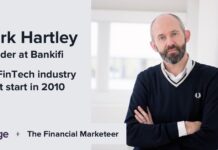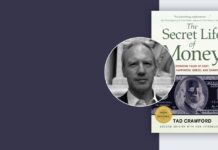Listen to the podcast
Interview with Lili Metodieva, Managing Director at Monneo
From starting her career in the payments industry in 2006 to recently leading her firm through a comprehensive rebranding process, my latest guest is proof that there is no substitute for experience when it comes to knowing your audience.
Lili Metodieva is the Managing Director of Monneo, a fintech firm that specialises in providing its clients with access to multiple banks via a single platform.
“We are a digital banking network and what we do is provide virtual IBANs for B2B businesses and mainly for ecommerce merchants.”
In short, Monneo makes it possible to gain access to multiple banks and accounts through a single login.
“Ecommerce merchants can receive settlement funds from their acquirers and their payment service providers and they can pay out for any day to day operational costs.”
What’s the problem that Monneo is working to solve?
“Maintaining multiple bank accounts at multiple banks, going through the process of applying for a bank account each and every time with each and every bank separately is quite time consuming, it’s costly and this is what we have tried to address.”
It’s the classic fintech story; a fundamentally simple idea that hides the complexity associated with ‘the old way’ of doing things, in this case, maintaining multiple bank accounts with multiple organisations.
“Our clients can get access to our network of banks under the same agreement and underwriting process and after that, they can access their accounts under the same login within our platform.”
Monneo, on the face of it, provides access to banking products. Underneath all of that though, it’s ultimately a solution that frees up precious time for its clients.
Navigating an exceptional year
Being an international-facing firm (Monneo offers international payments in 134 currencies) I wanted to ask Lili about the effects of two very international challenges; Brexit and COVID and how these have changed the way the firm works over the past year.
“From a COVID perspective, it has been a challenging year because we haven’t had the chance to do the usual trade shows and conferences to meet our clients face to face.
“We had to switch to different marketing channels and activities to move everything online, although I still believe the personal contact with clients is the most important thing.
“I wouldn’t say [the pandemic] has limited our growth just because our focus is ecommerce, and ecommerce has been booming because of COVID…I think we have used this time very wisely to develop our solution.”
COVID, it’s clear, has presented challenges relatively equally to firms across the industry. Moving our conversation onto the thorny issue of Brexit, I wanted to understand how the UK’s divorce from the EU has affected things on the ground for a fintech firm.
“Brexit has created some challenges in the market in terms of how different regulators, companies and banks interpret the post-Brexit scenarios.
“What should happen, what kind of measures and direction they need to take so this has created quite a confusion in the market. I think it still needs to be clarified, I think people from our industry still need to get the proper consultancy to get the right direction on what to do after Brexit.”
The path to a rebrand
Picking up on Lili’s point about using the time provided by the COVID lockdowns wisely, I moved our conversation onto the topic of Monneo’s recent rebrand and what led to the decision to undertake the work.
“What led to [the rebranding work] is all of the development we’ve done in regards to our solution and developing our offering.
“At some point we felt that our previous branding didn’t present our company and our solution properly. We felt that we had achieved a lot more and we had to present it in the right way to the world.”
The branding process
“It was a complete change, we had to define our brand DNA, to decide how to show how our solution impacts our customers, the value we create for our customers, how it impacts the industry, the values we create for the industry and society and the values we create in general; [asking], how do we make the world a better place?”
I was keen to understand more about how a firm like Monneo goes about defining what Lili refers to as the brand’s ‘DNA’. “We had to work on the brand architecture. Most people think it’s about the logo but there’s actually more to it. It’s the design, the image, the language, behaviour, the emotion you bring.
“All of these elements we had to define in order to deliver the proper architecture which will then speak properly about our solution.”
Lili is quite clear, the branding process is a strategic undertaking first and foremost, with the visual and language elements following thereafter.
Outsourcing vs in-housing
Something that cropped up throughout our conversation was Lili’s firm belief in working with trusted partners rather than in-housing the marketing process.
“We have outsourced most of the [marketing] elements. On our end, what is left is the decision making part…the reason for that is that we want to do things in a really professional manner so we are working with companies that are recommended who have excellent portfolios…we prefer at this stage to outsource all of these projects.”
Knowing your audience
Picking up on Lili’s point that Monneo retains the ‘decision making’ part of the marketing process in-house, I wanted to understand how the firm goes about understanding its target audience and their needs.
“I’ve been in the online payments industry since 2006 and the same with the founder of the company so we know our audience quite well.
“When it comes to defining the audience as a profile, from our experience we know what the audience looks like and what they need…I don’t think you can replace [experience] with any software, tool or anything else.”
Uniquely challenging
Another theme that has come up in my recent interview is the question of what makes marketing in the financial services sector unique?
“I think [the finance industry] is unique because it’s challenging because now the fintech industry in general and the financial marketing related to it is quite saturated with a lot of solutions and a lot of players.
“The uniqueness of it comes from the challenge to be able to present a brand…in a way that it stands out among all of the others.”
It’s clear from what Lili tells me that part of what makes financial marketing unique is the sheer number of competing solutions, each demanding a unique position in the market.
“[There’s also] the challenge to explain all of these new things and new developments to the audience in a proper language…people should be educated on what’s new and that also happens through the marketing activities.”
It’s another important point that’s perhaps more true for financial services than most other sectors; educating your audience is of vital importance.
Asking the right questions
It’s at this point that Lili highlights one of the most important features of a successful marketing operation; the ability and capacity to ask the right questions.
“Who can ask the right questions, this is what it’s all about…it’s to have the right people, the professionals and experts who can ask the right questions at the right time and help with the different aspects of the marketing.”
Lili again highlights her firm belief in the power of working with trusted partners. “Marketing is how you’re going to communicate your solution properly out there to the market and I think we will continue using partners for this because I really want to deliver things in a very professional way.”
It’s not just outsourcing partners who can pose the right questions either, but also new members of the team who bring a fresh perspective. “Every time a new employee, for example, joins the company…they are able to see things from a different angle so they can also ask the questions.”
Advice for marketers
In keeping with tradition, I end our conversation by asking Lili for her best advice for others looking to embark on a role in marketing within financial services.
“It’s about listening to people, listening to what they have to say. Listening to the stakeholders when it comes to marketing and branding…only this way you get the right information.
“In our fintech industry we are very much focussed on the technology and the financial services, but eventually we sell the service which comes with some kind of an emotion…so people in marketing should listen to the stakeholders to find out what these emotions are.”











